

新编日语词汇手册(1)
¥26.60
本书为《新编日语(重排本)*册》的配套词汇手册,对每课单词行解说并提供例句。解说部分介绍单词的写法、读音、意义及用法,例句提示单词在实际语境中的运用。每课后提供分类词表,方便读者背诵单词。 为方便读者自学,本书提供 "随行课堂"移动应用、单词及例句的录音、单词小册子等配套产品。

俄语专业本科生教材:俄罗斯概况
¥29.40
本教材系《新世纪高等学校俄语专业本科生系列教材》中的一种。全书以*高等学校外语专业教学指导委员会编写的“俄语专业教学大纲”为基础,全面介绍了俄罗斯历史、地理、政治、经济、科技、文化等方面的国情知识。本教材适用于本科阶段概况课的教学。 王仰正、赵爱国、周民权编著的《俄罗斯概况》共分3篇18课。第1篇为“地理历史篇”,主要介绍俄罗斯地形、气候、环境、江河等自然地理情况,以及从基辅罗斯到独立后的俄罗斯一千多年的历史演变情况;第2篇为“政治经济篇”,不仅系统介绍了俄罗斯新宪法、总统制、议会、司法机构、各联邦主体、主要政党、对外政策、行政区划及主要城市等政治体制和行政体制方面的情况,而且全面展示了其经济体制、经济区划、经济发展以及对外经济特别是和中国的经贸关系等状况;第3篇为“科技文化篇”,主要介绍俄罗斯的科技、教育、语言文字、媒体及文学艺术、民族,宗教和民俗礼节、主要节日等。 《俄罗斯概况》内容新颖,视角独特,尤其对历史事实作了许多不同于以往的论述,有利于学生更加全面、客观地了解俄罗斯。丰富多样的课后练习更是锦上添花,为学生就有关主题的讨论设计了良好的交流平台。

德语专业本科生教材:高级德语 第2册
¥20.30
本书为属于“新世纪德语专业本科生系列教材”,与《高级德语》册衔。全稿分8单元,适合本科三年级下学期使用。各文体比例趋于平衡,主题可读性强,现实意义大;大量词汇、语法、翻译及书面和口头表达练习,一步巩固和拓展德语专业学生的语言运用能力。
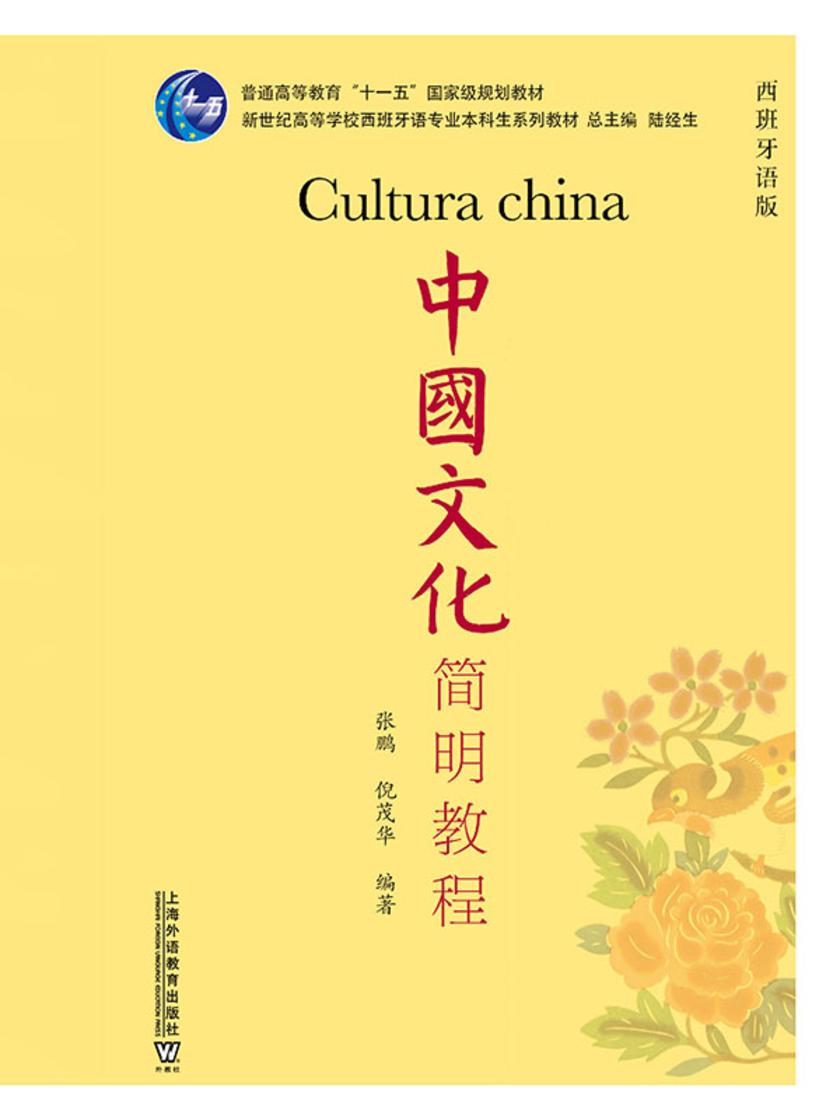
西班牙语专业本科生教材:中国文化简明教程(西班牙语版)
¥29.40
《中国文化简明教程》(西班牙语版)围绕中国文化中具有代表性的主题,以介绍中国优秀的文化亮为主线,使学生通过对素材的学习和领悟,体会中国文化的核心价值,培养民族自豪感,陶冶审美情操,弘扬中华民族的优秀品质和人文精神。 本书涵盖了12个文化主题,每个主题下分若干篇课文,每篇课文后附有词汇表和相关思考题。书中撷取中国文化为典型的侧面,从国家与民族、宗教信仰、思想哲学、伦理道德、语言文字、文学艺术、风俗饮食、工艺美术、体育活动和中医等方面行编排,既适用于高校西班牙语专业中国文化相关课程,也可作为西语国家留学生了解中国文化、学习中国文化的读本。
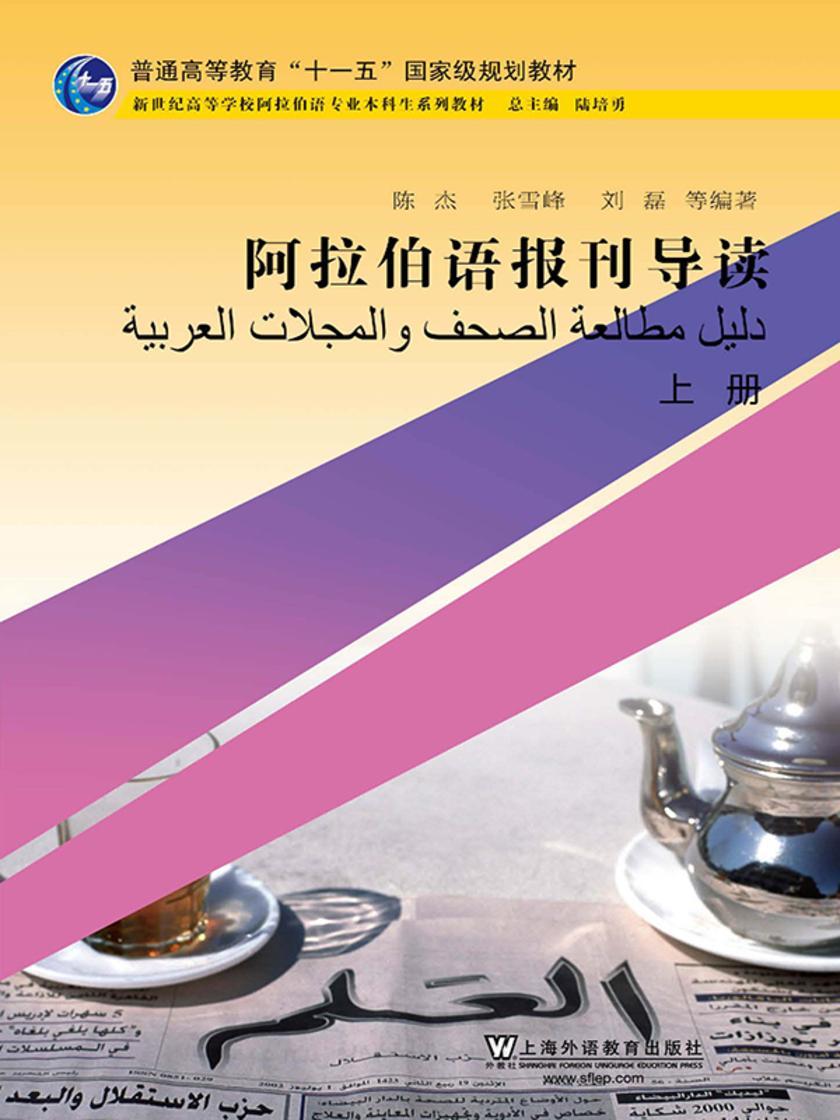
阿拉伯语专业本科生教材:阿拉伯语报刊导读 上册
¥29.40
本教材系新世纪高等学校阿拉伯语专业本科生系列教材,分上下两册,由上海外国语大学阿拉伯语系陈杰老师带领的青年教师团队编写完成。本书为上册,主要供阿语专业本科三年级学生及同等学力的社会读者使用。 本教材主要由分类阅读和专题阅读两部分组成,上册主要为分类阅读部分,下册主要为专题阅读部分。分类阅读按照新闻涉及的社会面选择素材;专题阅读则从不同的角度阐释某一特定的新闻话题。两者相辅相成,互为补充。编者所选用的素材来自阿拉伯世界的各大知名报刊及网站,还从中国各大新闻网站的阿文版取材。每篇报刊阅渎还配备题型多样的习题,多角度、多层次地测试学生阅读理解程度,并教授其充分利用阅读语料来提升语言表达能力。


日语专业本科生教材:日语综合教程 第3册
¥32.20
本套教材为高等学校日语专业本科低年级精读教材。参照《高等院校日语专业基础阶段教学大纲》的要求,根据当前我国高等院校日语专业发展的新情况、新形式,对以往的教材行深研究并结合自己的教学经验编写而成。本套教材既注重日语基础知识的传授和听、说、读、写等基本技能的训练,又兼顾实际语言运用能力的培养,丰富学生的日本社会文化知识,为高年级阶段学习下坚实的基础。 第三册供二年级上学期使用。周星、徐志强、赵鸿编著的《日语综合教程(第3册新世纪高等学校日语专业本科生系列教材)》共16课,以日本社会和文化方面内容为题材,每课编课文、新出单词、语法与句型学习、词组学习、单词学习以及练习等方面的内容。课文由正文和数段会话组成。教师在上课时,可以先上正文,也可以视情况先上会话文。教学中要求以操练为主,讲解为辅。


新理念大学法语(3)学生用书
¥24.50
陈小莺、陈建伟主编的《新理念大学法语(学生 用书3高等学校大学外语教学指导委员会法语 组使用教材)》坚持《要求》倡导的教学理念和 方法,注重知识与能力的结合,一步加强学习者综 合运用语言的能力。本书充分吸收我国大学法语教学 长期以来积累的经验,广泛借鉴国外先教学理念, 改变传统教学追求单项语言能力培养的模式,突出“ 素质教育”理念,培养学生跨文化交际能力。教材每 单元各版块围绕同一教学目标展,又相对独立:由 于我国大学法语的教学对象复杂,类型较多,学时各 不相同,学习者可根据实际情况选择使用教材内容, 以达到“培养学生不同层次的法语综合运用能力”的 教学目的。本书秉承**、二册的编写理念,沿袭第 一、二册的编写结构,按版块编写,方便不同学时的 学校使用。


新理念大学法语系列:大学法语四级考试听力应试指南
¥18.20
《新理念大学法语系列:大学法语四级考试听力应试指南》详细分析了大学法语四级考试听力部分的三种题型,书中习题的考和主题均来自大学法语四级考试历年真题。习题后配有精要评,“睛之笔”提炼考和答题技巧,“知识补充”帮助学习者复习法语语法和文化知识。5套模拟题按《大学法语四级考试大纲》的要求编写,录音严格按照考试规格剪辑,有助于学习者快速备战四级考试。
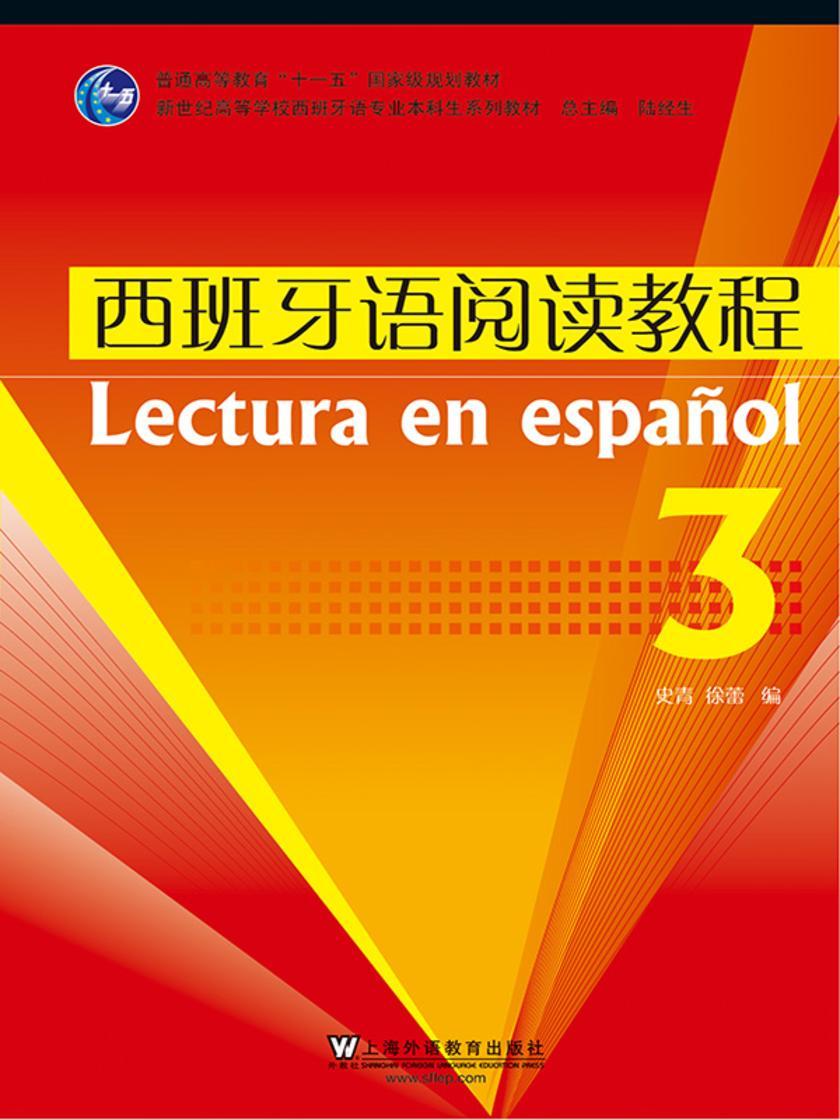
西班牙语阅读教程(3)西班牙语专业本科生系列教材
¥28.70
“新世纪高等学校西班牙语专业本科生系列教材”是普通高等教育“十一五”*规划教材,由*高等学校外语专业教学指导委员会西班牙语分委员会与上海外语教育出版社联手发。本套教材聚集全国主要高校西语骨干教师共同编写。教材编委会由有多年西语专业一线教学经验的专业负责人和骨干教师组成,所属院校类型齐全,地域遍及全国东南西北,代表了我国西语专业教学水平和发展方向,系列教材的出版将一步满足21世纪西语专业发展和西班牙语人才培养的需要。。 ★ 瞻性与创新性并重:推陈出新,融合传统与现代教学理念,符合21世纪西班牙语人才培养需要,引领中国西班牙语教学潮流; ★ 代表性与权威性兼顾:全国主要高校的西语专业负责人和骨干教师参与编写,西语界近百位专家倾力奉献; ★ 系统性与整体性结合:特色鲜明,人文、科学知识融教材,涵盖高校西语专业主要课程,形成相互呼应的有机整体; ★ 突出趣味性和应用性:教材形式活泼、结构新颖,图文并茂,书面教材和多媒体手段配合。 《西班牙语阅读教程》是我国*套相对成体系的西班牙语阅读教材,旨在培养书面阅读能力,帮助学生掌握阅读方法,广泛触语言现象,积累语言知识,扩大词汇量,丰富文化知识及人文科学等领域的相关知识,提高对西班牙语原文的理解能力和阅读速度。阅读教程共分四册,供高校西语专业第二至第五学期使用,每册18个单元,每单元包括3篇课文和配套注释练习。阅读课文选用语言规范、内容生动、贴近生活、具有时代感的西班牙语原文作品,题材广泛,由浅深,循序渐,逐步增加阅读量。第三册选取文化风俗、人物传记、科普或历史轶事等原文材料,引导学生巩固扩大综合课所学语言知识。

德福备考·核心攻略与模拟试题集
¥23.80
德福考试(TestDaF)的德文全称是“Test Deutschals Fremdspra Che”。申请德国大学的外国学生事先必须通过语言考试并取得相应的成绩,德福考试就是其中的一种语言考试。
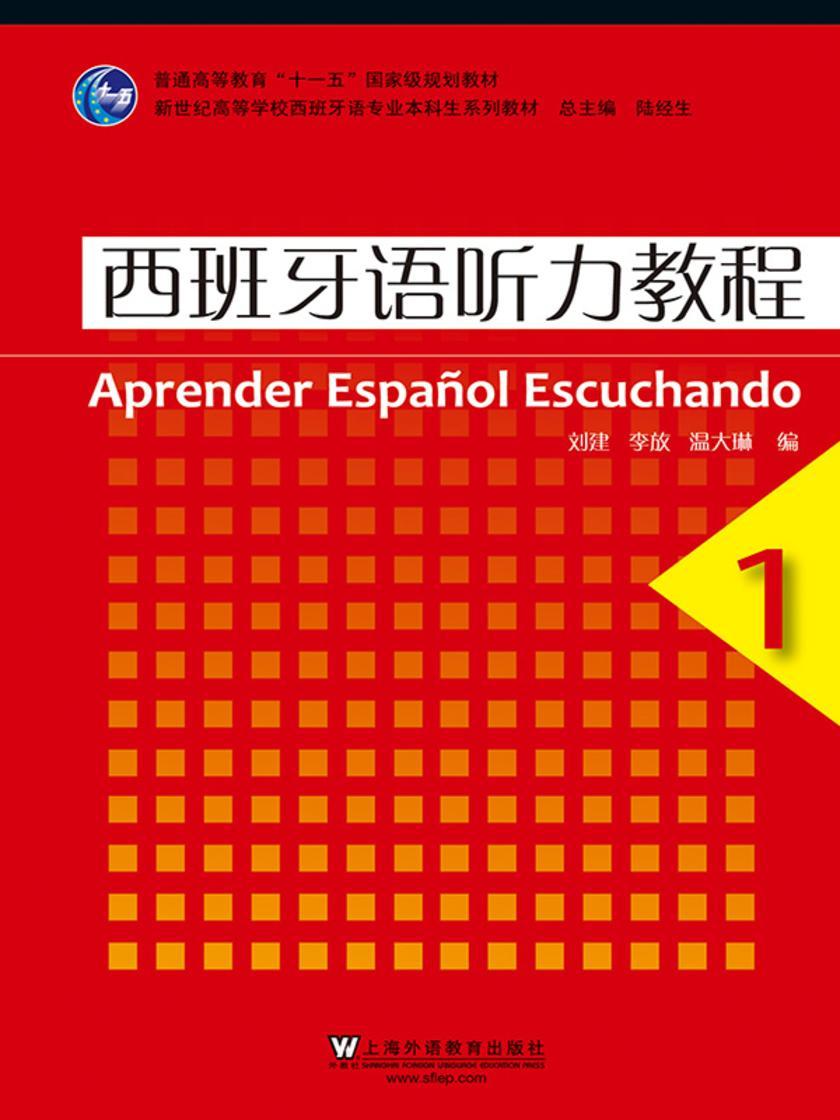
西班牙语听力教程(1)西班牙语专业本科生教材
¥25.90
本书为外教社组织策划的“新世纪高等学校西班牙语专业本科生系列教材”序列之一。这是国内门西班牙语专业教学展50多年来,首次根据中国学生特编写的一套听力教材,具有较好的系统性。《西班牙语听力教程》共有5册。册适用于包括大学本科一年级在内的初学者,共有16课。每课设有听力技巧、听力与理解、听力与表达、听写以及强化练习等5个部分。内容贴近生活,练习形式多样,编排由易到难,力图使学习者在学习语言知识的过程中不断提高语言应用能力和交际沟通能力。
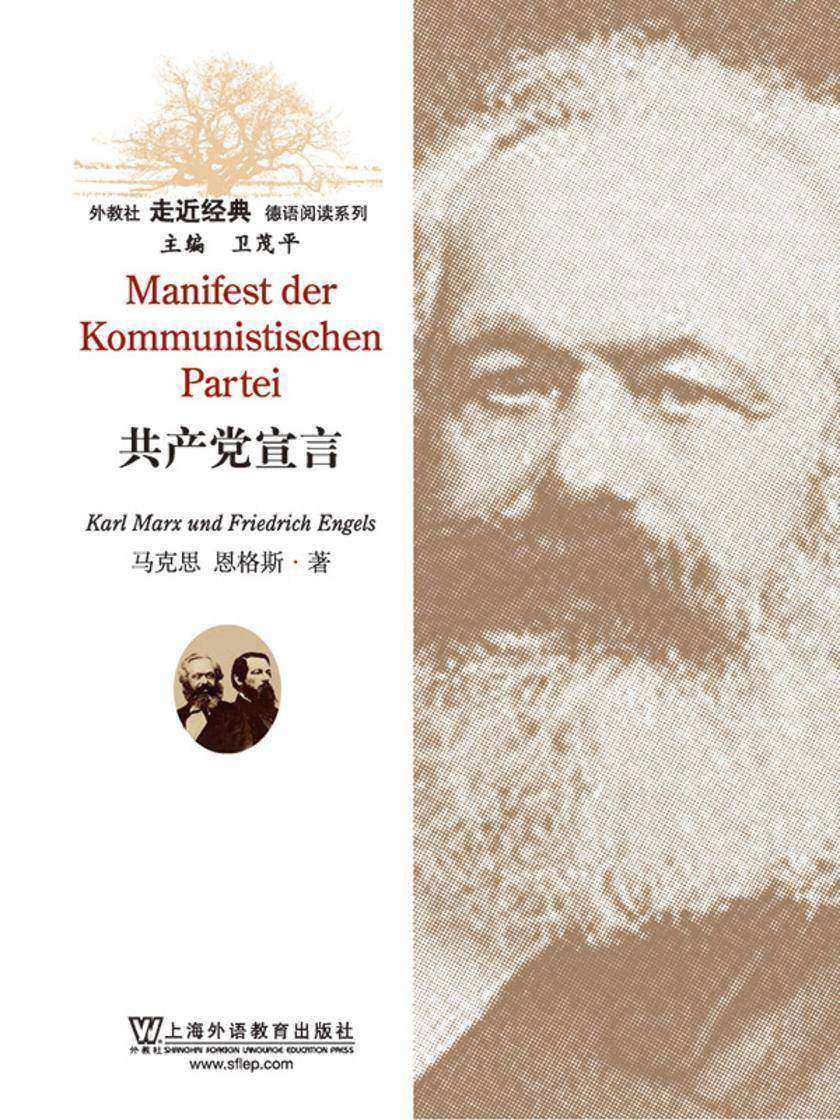
外教社走近经典德语阅读系列:共产党宣言
¥11.20
《共产党宣言》是马克思主义学说的一座丰碑。不过,就文学性而言,这篇纲领也堪称佳作。仅看“一个幽灵,一个共产主义的幽灵,在欧洲游荡”这样的头,我们可能很难想像,它引出的是一篇战斗檄文。其实,非灵气在腕,曷能臻此。马克思还是语言艺术家。在1865年给恩格斯的信中,他就自己的作品这样说:“不管它们会有怎样的不足,我文章的优都是艺术性的整体。”长期以来,《共产党宣言》的政治因素往往遮盖了它的艺术色彩。而其犀利的笔锋、形象的比喻及晓畅的文字,不读原文,又是很难真正领略的。本书选篇能给中国的德语学习者,提供欣赏马克思主义创始人笔墨之美的契机。
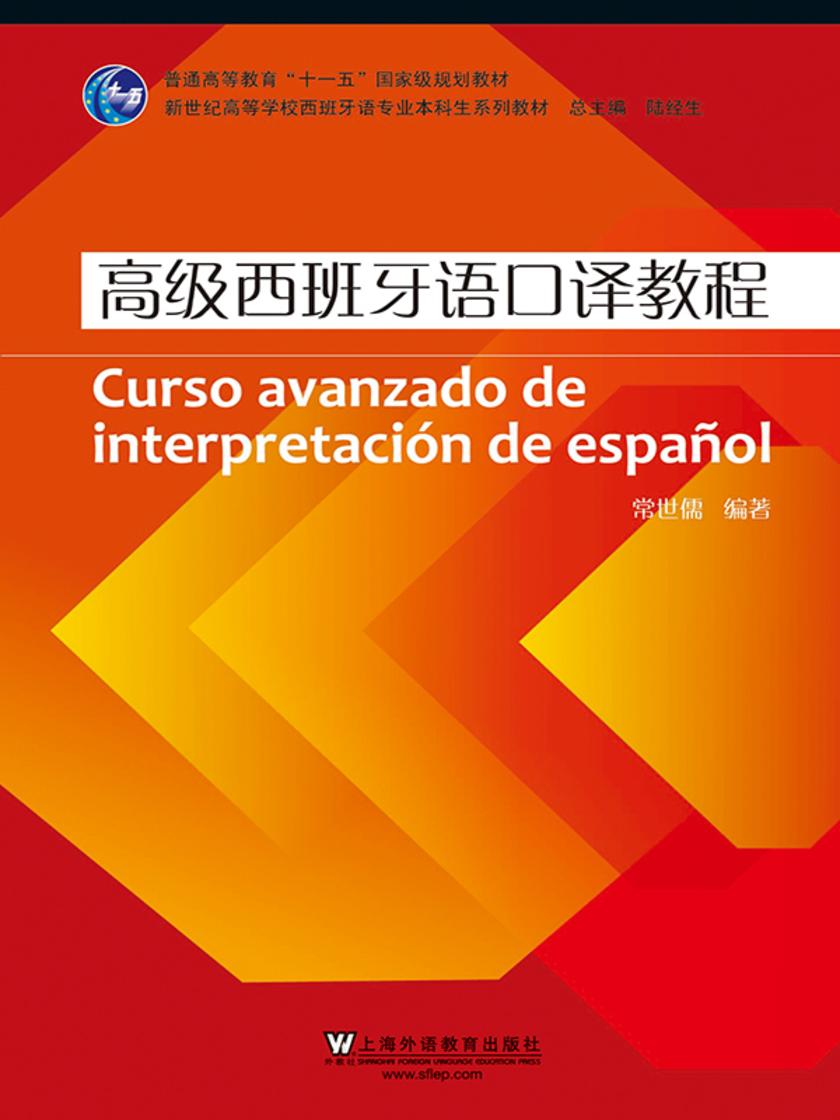
西班牙语专业本科生教材:高级西班牙语口译教程
¥41.30
《高级西班牙语口译教程》是外教社组织策划的“新世纪高等学校西班牙语专业本科生系列教材”之一,适用于大学本科高年级学生或研究生。本书除作为教材使用之外,还可作为自学材料和口译实务训练指南。 本书共19课,每课包含口译练习两篇、视译练习两篇、翻译理论与技巧及复习与巩固练习。课文收了见、宴请、咨询、祝辞、论坛、演讲、座谈会及领导人讲话等口译形式,内容涉及气候变化、环境保护、全球经济与贸易、货币与金融、可再生能源、世博会与城市发展、孔子与孔子学院等热门话题,并且更新了中国传统节日、中国外交、交通、广交会等传统题材,兼具时代性与多样性。

西班牙语专业本科生教材:西班牙语听力教程(2)
¥26.60
《西班牙语听力教程》是外教社组织策划的“新世纪高等学校西班牙语专业本科生系列教材”序列之一。这是我国自西班牙语专业教学展50多年以来,首次根据中国学生特编写的一套听力教材,具有较好的系统性。《西班牙语听力教程》共5册。第二册适用于大学本科二年级上及同等水平的学习者,共有16课。每课设有热身、听力与理解、听力与表达、听写以及强化练习等5个部分。内容丰富实用,语言纯正地道,练习形式多样,力图使学习者在提高交际水平和语言应用能力的同时增对西语国家文化的了解。


外教社公共法语系列:新公共法语 语法自习自测
¥21.70
(语法自习自测)为《新公共法语》配套的语法习题汇编。本书包括初级语法、中级语法和高级语法三个部分,根据(新公共法语)各册语法顺序行编排 本书对语法规则以习题形式加以门纳总结,编排由浅深,以带面,难易结合,重突出,循序渐,每单元习题后的“难解读”简明扼要,通俗易懂,对相关语法规则的难及要逐一行r解读、分析、释疑、归纳,帮助学习者掌握运用,备考各类法语测试。


新公共法语 基础语法全解
¥20.30
《新公共法语基础语法全解》系《新公共法语》配套教学辅导书,有助于法语初、中级学习者梳理法语基础语法知识,提升学习效率和效果。

全国德语专业八级考试真题与解析
¥21.00
由德语专业八级考试中心编写,权威性强 详细分析和讲解试题,剖析关键考点 阐释评分依据和标准,传授解题技巧 分析考生常见错误,突出考试注意事项 真题演练,强化实战体验,方便自测


新世纪高等学校法语专业本科生系列教材:旅游法语
¥16.10
《旅游法语》已列我社“新世纪高等学校法语专业本科生系列教材”,系高校法语专业学生使用的泛读教材。《旅游法语》能较快提高学习者旅游知识水平和旅游实务能力。


新公共法语 初级教程
¥23.10
《新公共法语》包括初级、中级和高级教程三册。初级教程教授纯正的语音语调、语法知识及常用词汇,训练学生口语表达能力;中级教程着重讲解法语的各种时态和词的用法,培养学生阅读理解和书面表达能力;高级教程重点介绍法语各种文体的特点,培养学生翻译较难文章的能力。三册教程突出了法语基本技能的训练和交际能力的培养,构建了完整的基础法语知识框架。 《新公共法语》基于法、英语对比的原创风格,汲取了国内外同类法语教材的长处,具有以下主要特色: ★ 语音:与英语语音对比来介绍法语音素,扼要地辅以法语发音规则;以功能观为指导,强调刺激反应和听觉感知; ★ 语法:采用法、英语法对比的方式,对相同之处提纲挈领地加以介绍,对相异之处则作重点讲解,解决中国学生学习法语的疑难困惑; ★ 词汇:开辟词和词组栏目,详细介绍法语动词的用法,并与英语中的相应动词进行对比;通过丰富的练习,帮助学生巩固理解词义,掌握词的用法;介绍构词方法,引导学生有效地熟记各类单词; ★ 语言说明:以随文出现的形式,对教材中重点语法、词汇难点逐一解读,有助于学生对语言现象的理解和掌握; ★ 特色栏目:语言文化小贴士、开心一笑、交际方法、习作园地、翻译实践及了解法国等栏目将知识、趣味和实用性结合起来,让学生轻松学法语。


全国高等学校法语专业八级考试指南(2018版)
¥31.50
高校法语专业八级考试每年举办一次,本书为专业八级考试历年考试真题。法语专八考试指南至今已出版两版(2012版和2015版)。这次重新修订,我们对考题行了增删,删去2015版中较早的试题,新增加了近三年的试题,使试题总数达到8套。图书内容仍为试题提纲、考试真题、答案及听力部分文字、报考和考试文件四部分。能帮助专八考生备考,也可帮助法语专业教师更有针对性地帮助学生复习迎考。


新公共法语 中级教程
¥24.50
《新公共法语》教程基于法、英语对比的原创风格,汲取了国内外同类法语教材的长处,特色鲜明。《新公共法语》教程包括初级、中级和高级三册。初级教程全面教授纯正的语音语调、基础语法知识及常用词汇,训练学生的口语表达能力;中级教程着重讲解法语的各种时态和词的用法,培养学生的阅读理解和书面表达能力;高级教程重介绍法语各种文体的特,培养学生翻译较难文章的能力。三册教程突出了法语基本技能的训练和交际能力的培养,构成了完整的基础法语知识框架。




 购物车
购物车 个人中心
个人中心



